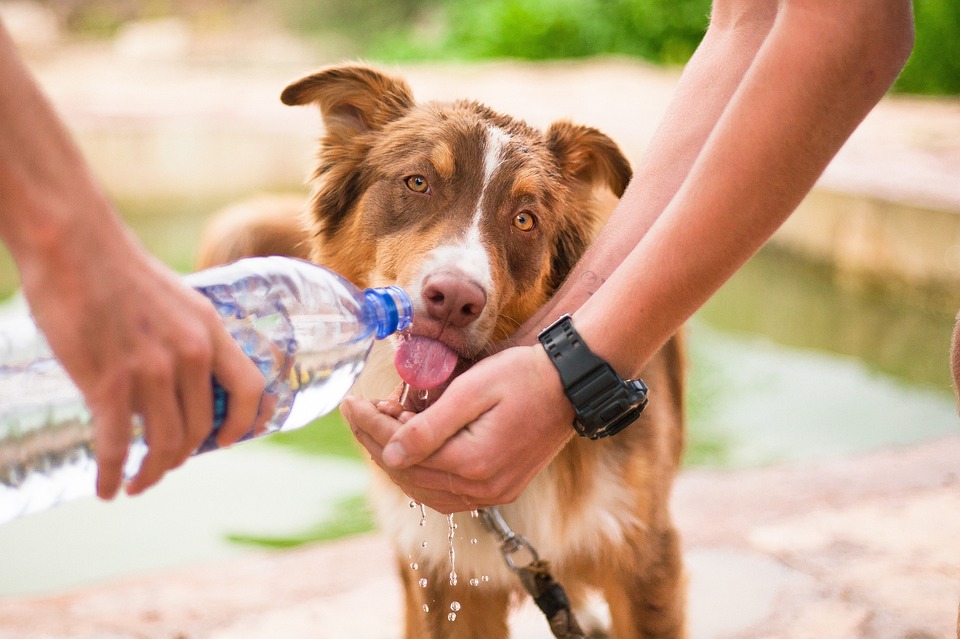Why Proper Hydration is Essential for Your Pet’s Wellbeing
Proper hydration is crucial for the overall health and wellbeing of your beloved pet. Just like humans, pets need a constant supply of fresh, clean water to stay properly hydrated. Water plays a vital role in various bodily functions, and insufficient hydration can lead to severe health issues and even be life-threatening.
The Importance of Hydration for Pets
Here are some reasons why proper hydration is essential for your pet’s wellbeing:
-
- Temperature regulation: Dogs and cats rely on panting and sweating through their paws to cool themselves down. Sufficient water intake helps maintain their normal body temperature, especially during hot weather or physical activity.
-
- Digestion and nutrient absorption: Adequate water consumption enhances digestion and enables the efficient absorption of essential nutrients from food. It helps prevent gastrointestinal problems such as constipation and reduces the risk of urinary tract diseases.
-
- Organ function: Water is fundamental for the proper functioning of vital organs such as the kidneys, liver, and heart. It aids in detoxification, waste elimination, and supports optimal organ performance.
-
- Joint and muscle health: Sufficient hydration helps maintain proper joint lubrication and ensures that muscles stay hydrated, reducing the risk of injuries and promoting mobility.
-
- Healthy coat and skin: Water helps keep your pet’s coat and skin hydrated, preventing dryness, itchiness, and flakiness. It contributes to a healthy and shiny appearance.
-
- Maintaining energy levels: Dehydration can lead to lethargy, decreased energy levels, and a general lack of vitality. Proper hydration is crucial for keeping your pet active, playful, and happy.
Signs of Dehydration in Pets
It’s important to be aware of the signs of dehydration in pets to take proper action in a timely manner. Some common symptoms include:
-
- Excessive panting or drooling
-
- Dry or pale gums
-
- Lethargy or lack of energy
-
- Loss of appetite
-
- Sunken eyes
-
- Dry and tacky nose
-
- Decreased skin elasticity
-
- Dark urine or lack of urination
-
- Rapid heart rate
If you notice any of these signs, it’s crucial to provide your pet with fresh water and consult a veterinarian if the symptoms persist.
Encouraging Hydration in Pets
Here are some tips to encourage proper hydration in your pet:
-
- Always provide fresh, clean water in multiple locations around your home.
-
- Regularly clean and refill your pet’s water bowl to ensure it remains fresh and appealing.
-
- Consider using a pet water fountain, as some pets prefer running water.
-
- Incorporate wet food or treats into your pet’s diet, as they contain higher water content.
-
- Make sure your pet has access to water during and after exercise or playtime.
-
- Monitor your pet’s water intake and consult with a veterinarian if you notice any changes.
FAQs (Frequently Asked Questions)
Q: How much water should my pet consume daily?
A: The water intake varies depending on the size, breed, age, and activity level of your pet. As a general guideline, dogs typically need 1 ounce of water per pound of body weight, while cats require 3.5 to 4.5 ounces per 5 pounds of body weight. However, it’s best to consult with your veterinarian for specific recommendations.
Q: Can I flavor my pet’s water to encourage drinking?
A: Adding a small amount of low-sodium chicken or beef broth to your pet’s water can make it more appealing, especially if they are reluctant to drink. However, it’s important to avoid using ingredients that may be harmful to your pet, such as artificial sweeteners or excessive salt.
Q: Are there any foods I should avoid giving my pet to prevent dehydration?
A: Some foods, such as salty snacks or those high in sodium content, should be avoided as they can contribute to dehydration. Additionally, certain human foods like chocolate, caffeine, and alcohol are toxic to pets and should never be given to them.
Q: My pet only drinks water when they are extremely thirsty. Is this normal?
A: Pets may have different drinking habits. However, consistently drinking only when extremely thirsty may indicate an underlying issue. It is advisable to consult a veterinarian to rule out any health concerns and ensure your pet’s hydration needs are met.
Q: Can I overhydrate my pet?
A: While proper hydration is crucial, overhydration can also pose risks. Some pets may develop water intoxication, particularly if they excessively consume large amounts of water or engage in certain activities like swimming. Maintain a proper balance and consult with your veterinarian if you have concerns.
Remember, proper hydration plays a vital role in keeping your pet healthy, happy, and thriving. By providing access to fresh water and paying attention to their water intake, you can ensure your pet remains properly hydrated and safeguard their overall wellbeing!

